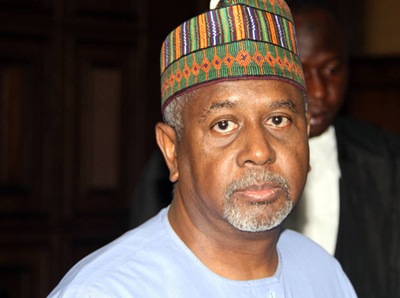Editorial
That Culture Of Foreign Dependence

The failure to allow the former National
Security Adviser, Col. Sambo Dasuki (rtd)
to go for medical attention abroad recently brings to a head the helpless dependence of Nigeria and Nigerians on other countries for nearly everything.
Dasuki who was denied his International Passport was touted by a statement that if he wanted good medical facilities why did he not make Nigeria provide the facilities when he was in government.
While we do not intend to take up the propriety or otherwise of the basis for denying him the opportunity to attend to his health and stay alive, the reason why every wealthy Nigerian should run overseas for nearly anything needs to be addressed.
If before this time travelling overseas for medical treatment, even checkup was a status thing, the time has come for a rethink as such actions help to deplete the nation’s foreign reserves, condemn the nation’s health sector and make Nigeria a laughing stock.
It is simply scandalous that nearly 60 years after gaining independence, Nigeria has continued to depend on other countries even for daily food items, tooth picks and grasses that Nigeria needs to feed her cattle with. People actually import materials that were discarded in the Western countries, regardless.
On the now infamous medical tourism, the ability of those in leadership to effortlessly get the needed health services overseas has made them not bother about the quality of health services available locally. Again, the question would be how big the difficulty of providing world-class hospitals in Nigeria is?
The perception that anything foreign is better is what the present government must change if it must deal with corruption and rebuild the economy. This thirst for foreign goods can only make Nigeria dependent and live at the mercy of other people. It is a security risk as it is an economic ‘ebola’.
It is on record that some years ago, a nation like India decided to use only what it produced. Today, Indians have not only been forced to produce, but have challenged the first world in the area of medicine, science and technology, entertainment as well as defence.
The foreign dependency culture also affects the governance of Nigeria to a very great extent. Apart from seeking the approval of foreigners, instead of those that elected them, the average chief executive travels overseas more than he visits his home town. What these leaders run overseas for is not known and how such costly trips have helped the country over the years is never spoken about.
The former government started doing something about it by stopping frivolous overseas seminars for civil servants. But the governors and ministers were always away from their duty posts on account of overseas trips. Some who had State aircrafts forgot that they were called to serve and not the other way round.
The Tide thinks that for too long, some Nigerians have tended to write their greatness on the wrong pages of history. Indeed, the preference for foreign things by persons in government simply places a seal on the assumption that the best cannot come from this country and that there is nothing anyone can do. This is a lie that must be corrected.
Perhaps, when everyone knows that no matter the nature of ailment, nobody in government should go outside the country or send his/her children to schools overseas, something serious will begin to happen. Anybody who wants to live big should not do so with tax payers money as is the practice in the advanced democracies.
For too long, Nigeria has toyed with the idea of diversifying the source of the nation’s economy, but that cannot be until Nigerians patronised local products, raised expertise in all sectors and attract foreign distributors. But it all starts with a deliberate national policy to shame this dependence on everything foreign.
This government must start a campaign and come up with policies that will halt the loss of foreign reserves without hurting local entrepreneurship. This will also grow the much- needed employment and by extension, the peace and prosperity that the founders of the nation hoped for.
Editorial
For A Prosperous 2026

Editorial
Task Before New Defence Minister
Editorial
HYPREP And The Collapsed Water Tank


